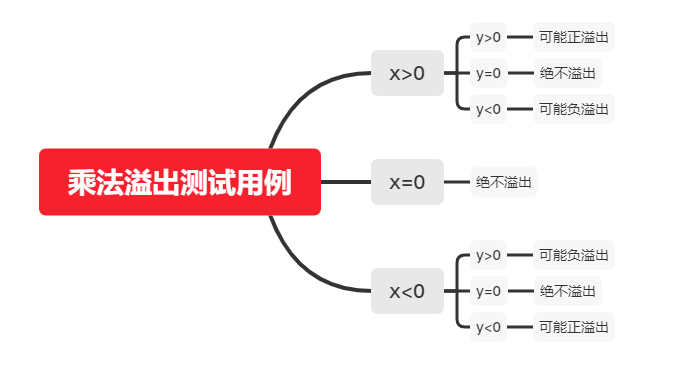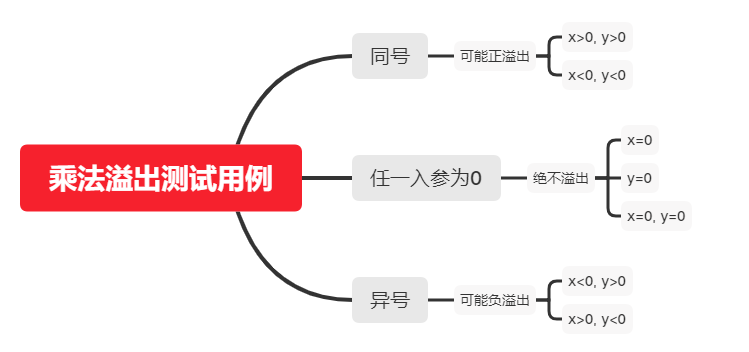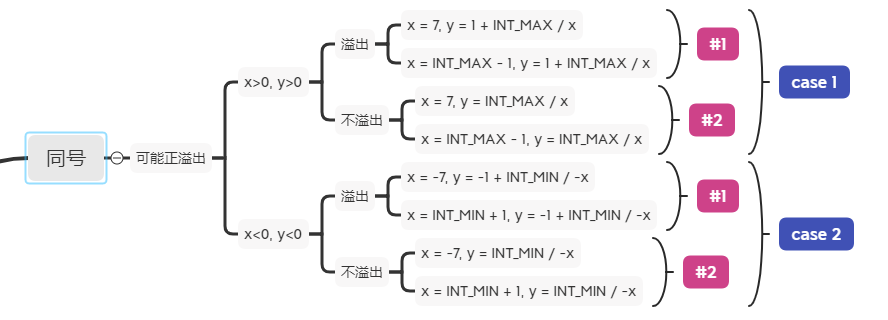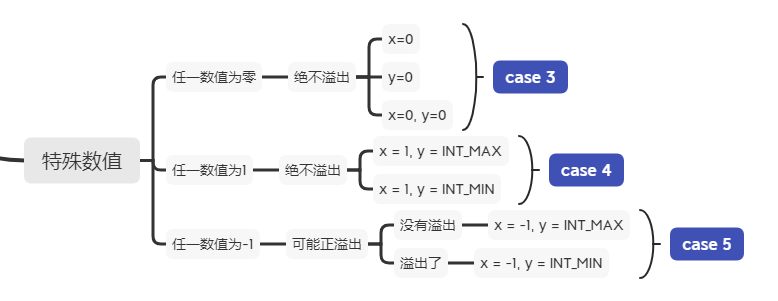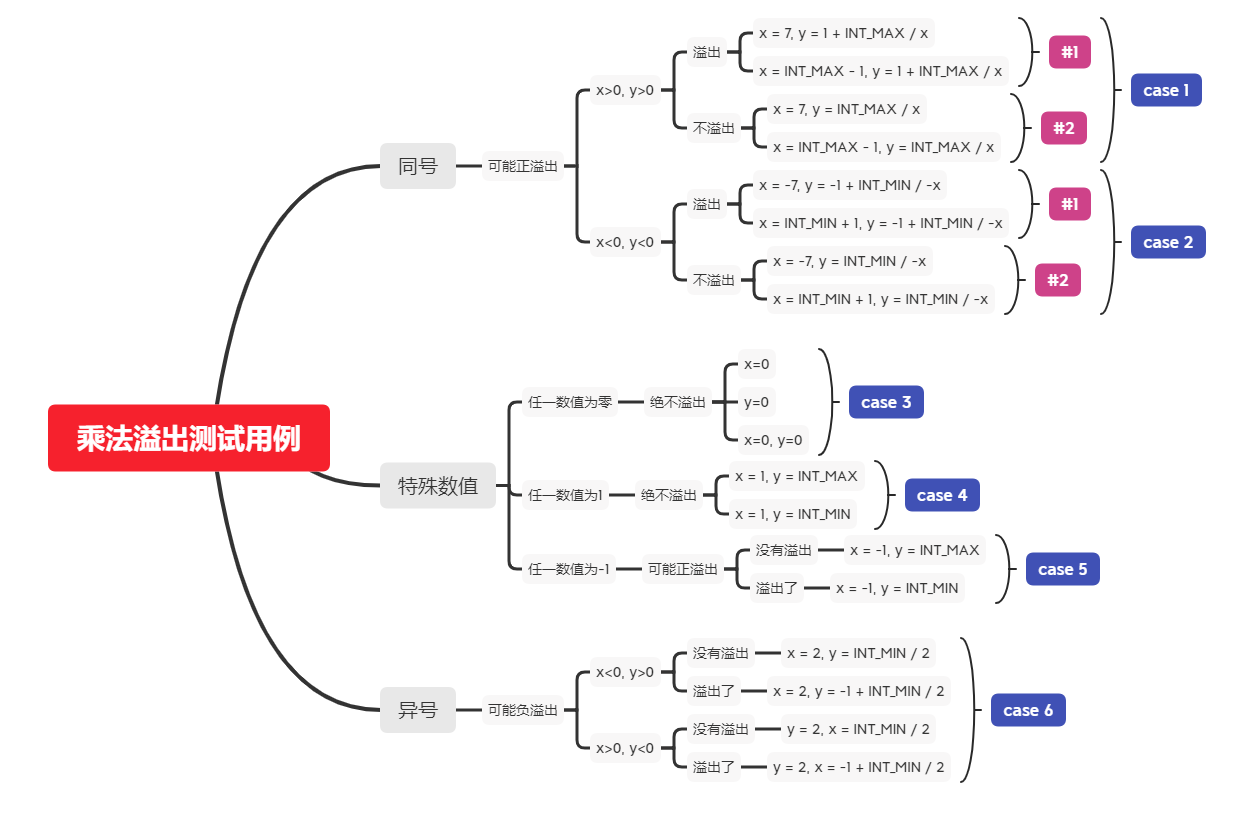1
2
3
4
5
6
7
8
9
10
11
12
13
14
15
16
17
18
19
20
21
22
23
24
25
26
27
28
29
30
31
32
33
34
35
36
37
38
39
40
41
42
43
44
45
46
47
48
49
50
51
52
53
54
55
56
57
58
59
60
61
62
63
64
65
66
67
68
69
70
71
72
73
74
75
76
77
78
79
80
81
82
83
84
85
86
87
88
89
90
91
92
93
94
95
96
97
98
99
100
101
102
103
104
105
106
107
108
109
110
111
112
113
114
115
116
117
| #include <cassert>
#include <iostream>
#include <numeric>
template <typename T1, typename T2>
bool is_multi_overflow(T1 x, T2 y) {
static_assert(std::is_same<T1, T2>::value,
"is_multi_overflow need same type!");
static_assert(std::is_integral<T1>::value,
" is_multi_overflow need integral type!");
int num_max = std::numeric_limits<T1>::max();
int num_min = std::numeric_limits<T1>::min();
if (x == 0 || y == 0 || x == 1 || y == 1) {
return false;
}
if (x == -1) {
return y == num_min;
} else if (y == -1) {
return x == num_min;
}
if (x > 0 && y > 0) {
return x > num_max / y;
} else if (x < 0 && y < 0) {
if (y == num_min && x <= -1) {
return true;
}
return x < num_min / -y;
} else if (x > 0 && y < 0 || (x < 0 && y > 0)) {
if (x > y) {
std::swap(x, y);
}
return x < num_min / y;
} else {
return false;
}
}
int main() {
int x = 0;
int y = 0;
int max_num = std::numeric_limits<int>::max();
int min_num = std::numeric_limits<int>::min();
x = 7;
y = 1 + max_num / x;
assert(is_multi_overflow(x, y));
x = max_num - 1;
y = 1 + max_num / x;
assert(is_multi_overflow(x, y));
x = 7;
y = max_num / x;
assert(!is_multi_overflow(x, y));
x = max_num - 1;
y = max_num / x;
assert(!is_multi_overflow(x, y));
x = -7;
y = -1 + min_num / -x;
assert(is_multi_overflow(x, y));
x = min_num + 1;
y = -1 + min_num / -x;
assert(is_multi_overflow(x, y));
x = -7;
y = min_num / -x;
assert(!is_multi_overflow(x, y));
x = min_num + 1;
y = min_num / -x;
assert(!is_multi_overflow(x, y));
x = 0;
y = max_num;
assert(!is_multi_overflow(x, y));
x = min_num;
y = 0;
assert(!is_multi_overflow(x, y));
x = 0;
y = 0;
assert(!is_multi_overflow(x, y));
x = 1;
y = max_num;
assert(!is_multi_overflow(x, y));
x = INT_MIN;
y = 1;
assert(!is_multi_overflow(x, y));
x = -1;
y = max_num;
assert(!is_multi_overflow(x, y));
x = -1;
y = min_num;
assert(is_multi_overflow(x, y));
x = 2;
y = min_num / 2;
assert(!is_multi_overflow(x, y));
assert(!is_multi_overflow(y, x));
x = 2;
y = -1 + min_num / 2;
assert(is_multi_overflow(x, y));
assert(is_multi_overflow(y, x));
}
|
